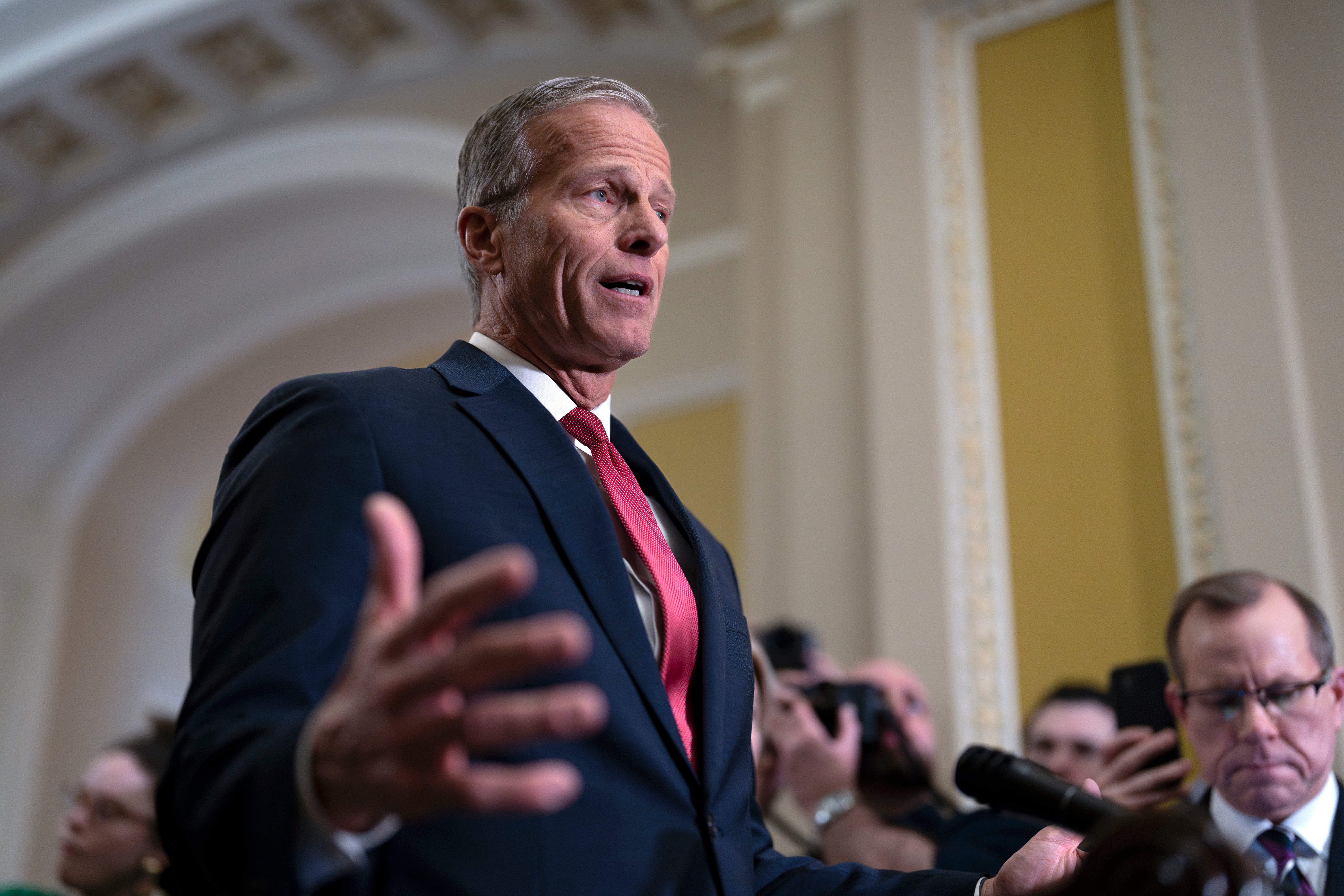After a chaotic evening on the House floor Tuesday night, Republicans narrowly passed the President Donald Trump-approved budget blueprint — but it may not get too far in the Senate.
GOP leadership briefly ditched plans to take a vote on the bill on Tuesday evening. Moments later, having swayed enough of the four conservative holdouts, leaders called lawmakers back to the House floor to take a vote; it passed 217-215.
But the budget measure could face yet another hurdle: Senate Republicans.
Although GOP Senators had been focusing on a two-bill approach to the budget, many indicated they’d be willing to shift support to the House’s one-bill approach, Politico reported.
Senate Majority Leader John Thune described the budget resolution that the House passed as “a first step in what will be a long process, and certainly not an easy one,” Politico noted. He privately told senators Wednesday that the House blueprint needs changes. A meeting will be held next week to discuss both sides, as the Senate passed its version last week.
“It doesn’t fit the president’s plan in its current form, so we would have to make some changes,” South Dakota Sen. Mike Rounds told Politico.

Some of the disagreements are focused on tax cuts. Senate Republicans hope to include a permanent extension of the 2017 Tax Cuts and Jobs Act, which Trump signed during his first term. The cuts are set to expire at the end of the year unless Congress intervenes.
North Carolina Senator Thom Tillis told The Independent on Tuesday evening: “The voters will absolutely reject Republicans for failing to fulfill that promise, period.”
Wyoming Senator John Barrasso similarly told Politico: “I know my Senate colleagues are committed to, as is the president, permanence in the tax situation. And we don’t have [that] yet in the House bill, so we’re going to work together in a cooperative way.”
Others expressed wanting more severe spending reductions. Wisconsin Senator Ron Johnson told the outlet that the cuts in the House version are “just not adequate.”
The House resolution calls for a $4 trillion debt limit increase.
Kentucky Senator Rand Paul told Politico: “Acquiescing to a $4 trillion increase in the debt ceiling is for me a non-starter … It basically acknowledges that this year the government’s going to be $2 trillion short.” Paul was the only member of his party to vote against the Senate’s budget framework.
Senators are also worried about how the House’s budget resolution could impact health care. The legislation calls for the House Energy & Commerce Committee, which oversees Medicaid, to find $880 billion worth of cuts.
“There are going to be a lot of concerns over the Medicaid cuts,” Missouri Senator Josh Hawley told Politico. “I realize it’s just a broad instruction to that committee, but I think there will be concerns about that and what that may lead to.”
Democrats also took issue with these cuts.
Delaware Senator Sarah McBride, a Democrat, bluntly put it to The Independent before Tuesday’s vote: “Regardless of what happens moving forward in this budget process, it is clear that the overwhelming majority of House Republicans want to cut Medicaid, they want to gut Medicaid.”
“This is about just everyday people,” New York Rep. Alexandria Ocasio-Cortez told The Independent. “There are Republicans that have huge amounts of Medicaid recipients in their districts.”
Hospitals that rely on Medicaid will also be affected, she noted. “Rural hospitals are going to be some of the first in the chopping block with these cuts,” she added.
Georgia Senator Raphael Warnock similarly predicted the impact of Medicaid cuts will be “devastating” to rural communities.
“The rural communities of our country and of our state of Georgia are disproportionately recipients of Medicaid. We’re seeing hospitals close,” he told The Independent.
“They’re going to exact all of this pain for what purpose? To redistribute wealth upward, taking from the neediest people in our country in order to give some more help to the wealthiest people in our country, while at the same time, blowing a big hole in the national debt.”
Senate Minority Leader Chuck Schumer said in a statement Wednesday that Tuesday night “almost every single House Republican signed their names to what would be the largest Medicaid cuts in American history. The havoc, the damage that would do to tens of millions of American families would be almost unprecedented when it comes to Medicaid.”
He added: “Why did Republicans do it? So they could cut taxes for the billionaire’s club.”

